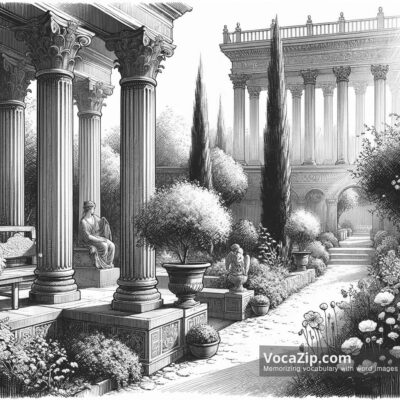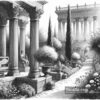classical meaning
classical :
traditional, ancient
adjective
▪ She enjoys listening to classical music.
▪ She likes listening to traditional music.
▪ The building has a classical design.
▪ The building has a traditional design.
paraphrasing
▪ traditional – classical
▪ antique – ancient
▪ timeless – classic
▪ historic – ancient

Pronunciation
classical [klæsɪkəl]
The stress is on the first syllable 'clas' and sounds like 'CLAS-i-cal'.
Common phrases and grammar about classical
classical - Common meaning
adjective
traditional, ancient
Part of Speech Changes for "classical"
▪ classic (noun) – a traditional example
▪ classicalism (noun) – adherence to traditional styles
Common Expressions with "classical"
▪ classical music – traditional music
▪ classical architecture – traditional building styles
▪ classical education – traditional teaching methods
▪ classical literature – ancient written works
Important examples of classical in TOEIC
Vocabulary examples from the TOEIC test
In TOEIC word questions, classical is often used to describe traditional styles or relate to ancient cultures.
Example of a confusing word: classic (timeless or exemplary)
Grammar examples from the TOEIC test
As an adjective, classical modifies nouns to describe their traditional or ancient characteristics in TOEIC questions.
classical
Idioms and fixed expressions in TOEIC
classical music
'traditional music styles', used when discussing types of music in passages.
old-fashioned
means 'outdated or not modern', used to describe styles or methods.
Differences between similar words and classical
classical
,
traditional
differences
classical refers to long-established styles or ancient culture, while traditional refers to customs or practices passed down through generations.
classical
,
antique
differences
classical refers to styles or cultures from ancient times, while antique refers to objects that are old and collectible.
Words with the same origin as classical
The origin of classical
classical comes from the Latin word 'classicus', which referred to the highest class of Roman citizens and later to traditional standards.
Word structure
It has the prefix 'class', the root 'class', and the suffix 'ical', so classical means 'related to class or tradition'.
Words with the same origin
The word's root is 'class'. Influential words with the same root include class, classification, classy, and classic.
Please select an image in the quiz
Previous post and next post







